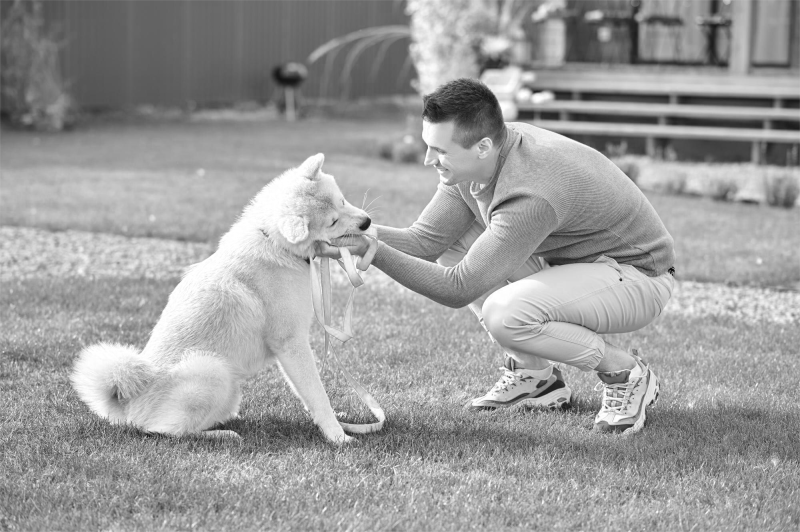This modern world can be quite stressful, and its “laws of success” prioritize productivity and profit over wellness. This leads many people astray. Keeping up with the world is tiring, anxiety-inducing, and seemingly banal. There’s no easy way to “fix” such a wide-scale problem.
However, there are unexpected ways to adapt to it and draw strength to carry on, such as taking care of pets. Pet care offers several benefits, a healthy mix of wellness and sustainability, that you may be unaware of. They will integrate into your life so seamlessly that the lifestyle changes they bring about will become second nature, and you will take them for granted.
Pets either encourage, force, or gradually lead to changes in the ways you do your daily tasks. These changes are extremely positive, both psychologically and physiologically, for people and for nature.
This article discusses the power of small lifestyle changes with pets and will suggest ways for you to maximize these benefits. If you are ready to seek that treasure, read further.
The power of small choices
Very rarely do pets undergo any ‘personal growth’ on their own. Yet, their seemingly listless life leads to personal fulfillment for their human guardians, something many other activities fail to achieve.
Pets have a very specific kind of lifestyle that modern people are not used to. They are instinctual, present in the moment, and are unconsciously emotionally and physically centered. Even the slightest discomfort can make them uneasy, and this makes good pet care from humans non-negotiable.
This urgency eventually necessitates lifestyle changes to accommodate your pet’s routine. That’s the benefit, because more often than not, these lifestyle changes align with your well-being, too.
The next sections will explore the positive lifestyle changes, big and small.
Micro-shifts, macro-results
Caring for pets doesn’t just fill your home with warmth; it naturally encourages you to adopt better routines. You start walking more, sticking to feeding schedules, and even striking up conversations with fellow pet lovers in the park. These small, almost invisible shifts can ripple through your body in powerful ways.
Harold Herzog, one of the world’s leading anthrozoologists and a professor of psychology, made a surprising discovery with his colleagues: people who owned pets had a significantly higher survival rate one year after a heart attack compared to those who didn’t.
It wasn’t just a coincidence. Gentle touches, such as stroking a dog or cat, or even watching colorful fish swim calmly in a tank, have been shown to lower blood pressure and soothe frazzled nerves.
In the same study, individuals with high blood pressure were subjected to stressful situations. Those with pets experienced significantly smaller increases in their blood pressure compared to those without. Broader population studies backed this up — pet owners generally reported better physical health and fewer doctor visits (for humans and, if the pet was well cared for, fewer vet visits as well).
Many pet owners also reported more regular exercise, deeper sleep, and a greater sense of physical fitness. These benefits were especially clear among those who felt a strong bond with their pets.
Over time, these micro changes to your lifestyle add up to macro health benefits, such as lower blood pressure, better mood, and general mental and physical health.
Aligning wellness and sustainability
Taking care of pets can help you connect with animals in new ways, seeing them as intelligent beings worth caring for.
This “more-than-human approach” challenges anthropocentric views. It helps people live more sustainably by recognizing that all species share the same basic needs on a planet with many species.
Pets can also help you feel better emotionally, which is beneficial for your overall health. Taking a biocentric view is crucial for improving lives and making the world safer, ultimately leading to a more sustainable future for everyone.
These are some of the general, overreaching benefits of pet care that lead to major positive changes in the future.
Now, consider the lifestyle changes you can incorporate into your daily life.
Healthy lifestyle changes that benefit you and your pet
A healthy relationship with pet care is good for you – you know that much already. But did you know that you can maximize these benefits even further? There are small, easy changes that help you live a healthy lifestyle with pets.
They can be tough to maintain, though. Taking simple yet actionable steps is far better than making extravagant, big moves. That’s what the following sections will discuss.
Walks that support fitness and cut carbon
Walking (or running) is one of the easiest activities most humans can partake in. It can easily make people healthier and encourage a life a bit freer from vehicle exhaust.
If your pet needs it, taking them out for daily walks not only improves your heart health but also keeps your pet fit and happy. Walking rather than driving for short errands (like buying your pet amazing toys!) even saves gasoline and contributes to lessening emissions overall.
Natural and sustainable pet products
As a pet owner, you want to pamper your pet to your heart’s content. And you should.
Pet happiness is infectious and encouraged. However, there is a way to incorporate small changes here as well. Advanced technology is something to be thankful for in these instances, as it makes natural and sustainable pet products more accessible to the general public.
Here are some ideas for incorporating sustainability into the products you purchase for your pets.
- Eco-friendly waste disposal. Change to compostable poop bags to reduce plastic waste.
- Eco-friendly grooming. Select grooming equipment made from bamboo and shampoos free from harsh chemicals.
- Eco-friendly living arrangements. Create a safe and comfortable space for your pet that is free from toxic and unsustainable materials. This helps prevent possible illnesses and increases the comfort and longevity of your pet.
These minor improvements make your pet’s care routine safer and more environmentally friendly. It also increases your sense of happiness with your pet, making you feel less stressed and anxious overall.
Homemade pet meals and low-waste feeding
Cooking is actually one of the most therapeutic activities. There is something special about attending to a necessary activity that provides one of the most satisfying kinds of gratification. It involves love of the softest kind, and when you cook for your pet at home, your furry partner feels this love radiating off of you.
Preparing homemade meals allows you to manage ingredients as needed, resulting in almost no waste. This can also help you avoid any unnecessary packaging. Alternatively, if you are not open to cooking yet, buying pet food in bulk helps reduce the amount of single-use plastic. The most important thing to remember is to prioritize health and sustainability at all times.
These options keep your pet healthy and loved. Plus, you do your part in lessening landfill waste by avoiding waste and single-use packaging.
Read more: Food Preservation: A Path to Sustainability
Quality time with pets and toys
If you have a pet, you already know the utter joy of playing with them. Nothing could compare to spending time with them; happiness can fill any heart to the brim. Even onlookers can feel it without participating.
But what are some ways you could make this time with them more meaningful? Here are some tips.
- Buy sustainable and safe toys. Play with your pets with robust, non-toxic toys that will last longer.
- Or, make sustainable and safe toys. Create simple toys out of old fabric or cardboard boxes to save money and repurpose materials.
- Even better, maintain existing toys. A pet can develop strong attachments to their old toys, so it’s best to keep them for a long time. This is also one of the most useful ways to practice environmental consciousness.
This mindful playing improves your mood. Using more non-toxic materials is also ultimately beneficial for your health (especially if you have small children). It saves you from unnecessary spending and promotes a greener lifestyle.
Reducing energy and water use
Hygiene is of utmost importance, even if your fur baby acts like the world is ending every time you bathe them. Regular bathing, brushing your pet’s teeth, and grooming are essential ways to keep your pet healthy and free from danger. This time is also crucial for establishing trust and confidence.
When you do so, here are some positive lifestyle shifts to implement:
- Use water and energy wisely. To save energy, bathe your pet with cold or lukewarm water (also, best for your pet!).
- Stay conscious about electrical equipment for safety. When going for a walk, turn off the lights and unplug your electronics.
- Save electricity wherever and however possible. Use fans instead of air conditioning to keep you and your pet calm while using less electricity.
Read more: Smart Ways to Conserve Water in Your Home
In conclusion
At the heart of caring for your pet is something more than routine: connection. A peaceful emotional relationship that invites you to sit down, listen, and act lovingly. These simple moments — such as choosing a walk over a car ride or repairing a ripped toy rather than purchasing a new one — serve as gentle reminders of what it means to live intentionally.
Sustainable living does not have to be overwhelming; it may be achieved through a series of conscious and small lifestyle changes. And when those modifications are motivated by affection for an animal partner, they feel less like a chore and more like care.
The changes discussed here not only benefit your health and that of your pet. It also safeguards shared resources and increases your sense of responsibility. It’s a gentle yet firm step towards health, sustainability, and emotional fulfilment.
Begin with one change today. For you, your pet, and your planet. Make a small but powerful difference.
If you want to see more resources on pet caring, check out the Personal Science Labs. The lab uses the research of the Institute for Life Management Science to produce courses, certifications, podcasts, videos, and other tools. Visit the Personal Science Labs today.
Photo by zinkevych on Freepik


